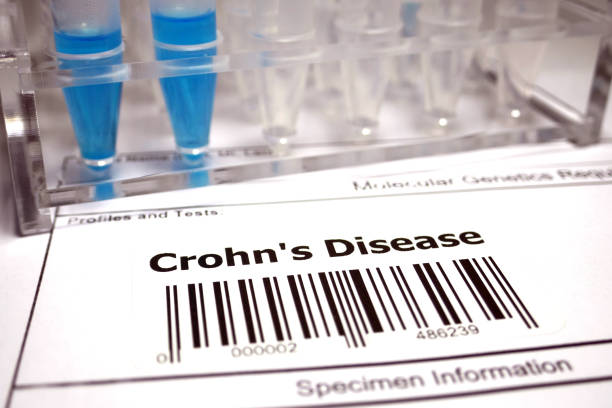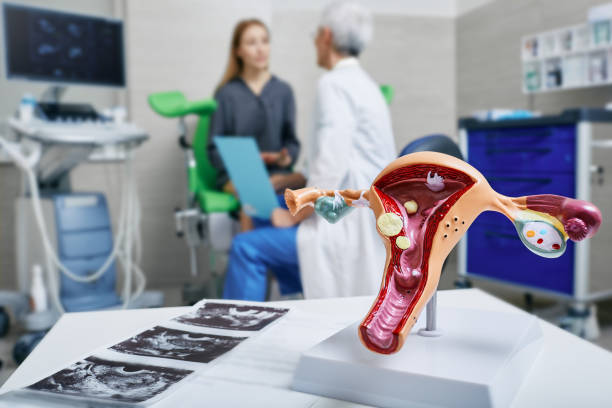Crohn’s Disease: Understanding and Managing a Complex Condition
Crohn’s disease is a chronic inflammatory bowel disease (IBD) that affects various parts of the digestive tract, most commonly the end of the small intestine and the beginning of the colon.

This debilitating condition can cause a wide range of symptoms, from abdominal pain and diarrhea to fatigue and weight loss, significantly impacting an individual’s quality of life. While there is no known cure for Crohn’s disease, advancements in medical research and treatment options have provided hope for millions of people living with this challenging condition.
In this comprehensive guide, we’ll explore the causes, symptoms, diagnosis, and various treatment approaches for Crohn’s disease, empowering you with the knowledge to better understand and manage this complex illness.
What is Crohn’s Disease?
Crohn’s disease is a type of inflammatory bowel disease (IBD) that can affect any part of the digestive tract, from the mouth to the anus. Unlike ulcerative colitis, another form of IBD that primarily affects the colon and rectum, Crohn’s disease can occur in patches, leaving healthy areas of the digestive tract interspersed with inflamed and damaged sections.
The inflammation in Crohn’s disease can penetrate deep into the layers of the intestinal wall, leading to the formation of ulcers, scarring, and potentially causing complications such as strictures (narrowing of the intestine), fistulas (abnormal connections between different parts of the digestive tract or other organs), and abscesses (pus-filled pockets).
Causes of Crohn’s Disease
While the exact cause of Crohn’s disease is not yet fully understood, researchers have identified several potential contributing factors:
Immune System Dysfunction: Crohn’s disease is believed to be an autoimmune disorder, where the body’s immune system mistakenly attacks healthy cells in the digestive tract, causing inflammation and damage.
Genetic Factors: Certain genetic variations may increase an individual’s susceptibility to developing Crohn’s disease. However, having a family member with the condition does not necessarily mean you will develop it as well.
Environmental Triggers: Factors such as diet, stress, smoking, and certain medications have been suggested as potential triggers for Crohn’s disease flare-ups, although more research is needed to establish definitive links.
Gut Microbiome Imbalance: Emerging research suggests that an imbalance in the gut microbiome, the collection of beneficial bacteria and other microorganisms in the digestive system, may play a role in the development of Crohn’s disease and other IBDs.
Symptoms of Crohn’s Disease
The symptoms of Crohn’s disease can vary in severity and frequency, depending on the location and extent of inflammation in the digestive tract. Common symptoms include:
Abdominal Pain and Cramping: Individuals with Crohn’s disease often experience recurring abdominal pain and discomfort, which can be severe during flare-ups.
Diarrhea: Frequent and urgent bowel movements, sometimes accompanied by blood or mucus, are a common symptom of Crohn’s disease.
Fatigue and Weakness: The chronic inflammation and nutrient malabsorption associated with Crohn’s disease can lead to feelings of fatigue and weakness.
Unintended Weight Loss: Severe cases of Crohn’s disease can cause significant weight loss due to decreased appetite, malnutrition, and nutrient malabsorption.
Fever: In some cases, individuals with active inflammation may experience fever or elevated body temperature.
Mouth Sores: Crohn’s disease can cause painful sores or ulcers in the mouth or throat, making it difficult to eat or swallow.
Dehydration: Frequent diarrhea can lead to dehydration if fluids and electrolytes are not adequately replaced.
It’s important to note that the severity and frequency of symptoms can vary greatly between individuals and may change over time, even within the same person.
Diagnosis of Crohn’s Disease
Diagnosing Crohn’s disease typically involves a combination of medical history, physical examination, and various diagnostic tests. Here are some common methods used to diagnose the condition:
Medical History and Physical Examination: Your healthcare provider will ask about your symptoms, family history, and any other relevant medical information. They will also perform a physical examination, including an abdominal examination, to assess for tenderness or abnormalities.
Blood Tests: Blood tests may be ordered to check for signs of inflammation, anemia, or nutrient deficiencies associated with Crohn’s disease.
Stool Tests: Stool samples may be analyzed to rule out other potential causes of gastrointestinal symptoms, such as infections or parasites.
Endoscopic Procedures: Procedures like colonoscopy (examination of the colon), upper endoscopy (examination of the upper digestive tract), or capsule endoscopy (swallowing a small camera pill) may be performed to visually inspect the digestive tract for inflammation, ulcers, or other abnormalities. Biopsies (tissue samples) may be taken during these procedures for further analysis.
Imaging Tests: Imaging tests such as CT scans, MRI, or small bowel follow-through (X-ray examination of the small intestine) may be used to evaluate the extent and location of inflammation or complications like strictures or fistulas.
Once a diagnosis of Crohn’s disease is confirmed, your healthcare provider will work with you to develop an appropriate treatment plan based on the severity of your condition and your individual needs.
Treatment Options for Crohn’s Disease
While there is no known cure for Crohn’s disease, various treatment options are available to manage symptoms, induce and maintain remission, and improve overall quality of life. The choice of treatment will depend on the severity of the condition, the location and extent of inflammation, and an individual’s response to different therapies.
Medication Therapies:
a. Aminosalicylates (5-ASA drugs): These medications, such as mesalamine, are often used to treat mild to moderate Crohn’s disease in the colon or rectum. They help reduce inflammation and can be taken orally or rectally.
b. Corticosteroids: Steroids like prednisone or budesonide may be prescribed for short-term use to quickly reduce inflammation during flare-ups.
c. Immunomodulators: Medications like azathioprine (Imuran), mercaptopurine (Purinethol), and methotrexate work by suppressing the overactive immune response that causes inflammation in Crohn’s disease.
d. Biologic Therapies: These targeted therapies, such as infliximab (Remicade), adalimumab (Humira), and vedolizumab (Entyvio), are designed to block specific proteins or pathways involved in the inflammatory process.
Dietary Modifications: While there is no specific “Crohn’s disease diet,” some individuals may benefit from avoiding certain foods that exacerbate their symptoms. Working with a registered dietitian can help identify potential trigger foods and develop a personalized dietary plan that promotes remission and supports nutrient absorption.
Nutritional Therapy: In cases of severe malnutrition or when oral intake is not possible, nutritional support through enteral (tube feeding) or parenteral (intravenous) nutrition may be necessary to provide essential nutrients and promote healing.
Stress Management: Stress can trigger or worsen Crohn’s disease flare-ups. Incorporating stress-reduction techniques like meditation, yoga, or counseling may help manage stress and improve overall well-being.

Surgery: In some cases, surgery may be recommended to remove damaged or inflamed portions of the digestive tract, repair fistulas or strictures, or address other complications. However, surgery does not cure Crohn’s disease, and the condition can recur after the procedure.
Complementary and Alternative Therapies: While more research is needed, some individuals may find relief through complementary and alternative therapies like probiotics, herbal supplements, or mind-body practices like mindfulness or hypnotherapy. However, it’s important to consult with your healthcare provider before trying any new therapies, as some may interact with existing medications or have potential side effects.
Ongoing Research and Potential New Treatments
Crohn’s disease is an active area of medical research, with scientists and clinicians continually exploring new treatment options and potential cures. Some promising areas of research include.
Stem Cell Therapy: Researchers are investigating the use of stem cells to regenerate and repair the damaged intestinal lining in individuals with Crohn’s disease.
Fecal Microbiota Transplantation (FMT): FMT involves transplanting healthy gut bacteria from a donor into the intestine of an individual.
Conclusion
Crohn’s disease is a complex and challenging condition that requires a multifaceted approach to manage effectively. While the journey can be daunting, it’s important to remember that each individual’s experience with Crohn’s disease is unique, and finding the right combination of treatments, lifestyle modifications, and support systems is crucial.
Actively participating in your care and working closely with your healthcare team is essential for achieving the best possible outcomes. Don’t hesitate to ask questions, voice concerns, and share your preferences when it comes to treatment options. Remember, you are the expert on your own body and experiences, and your insights can help guide your healthcare providers in developing a personalized plan that works for you.
In addition to medical interventions, embracing a holistic approach that addresses not only physical symptoms but also emotional and psychological well-being can greatly improve your quality of life. Engaging in stress-reducing activities, seeking support from loved ones or support groups, and maintaining a positive mindset can make a significant difference in your ability to cope with the challenges of Crohn’s disease.
It’s also essential to be proactive in managing your condition by adhering to your treatment plan, monitoring your symptoms, and making necessary lifestyle adjustments. This may involve working with a registered dietitian to develop a personalized dietary plan, engaging in regular physical activity (as tolerated), and practicing good self-care habits to promote overall well-being.
Remember, you are not alone in this journey. Seeking support from others who understand the unique challenges of living with Crohn’s disease can provide invaluable advice, encouragement, and a sense of community. Support groups, patient advocacy organizations, and online forums can be excellent resources for connecting with others facing similar struggles.
While there is currently no known cure for Crohn’s disease, ongoing research and advancements in medical science offer hope for the future. By staying informed about the latest developments in treatments, clinical trials, and research findings, you can actively participate in your care and potentially benefit from emerging therapies or discoveries.
Ultimately, managing Crohn’s disease requires a combination of perseverance, self-advocacy, and a willingness to adapt to the ever-changing nature of this condition. By taking an active role in your care, embracing a holistic approach, and surrounding yourself with a supportive network, you can navigate the challenges of Crohn’s disease with resilience and hope, focusing on living your best life despite the obstacles.